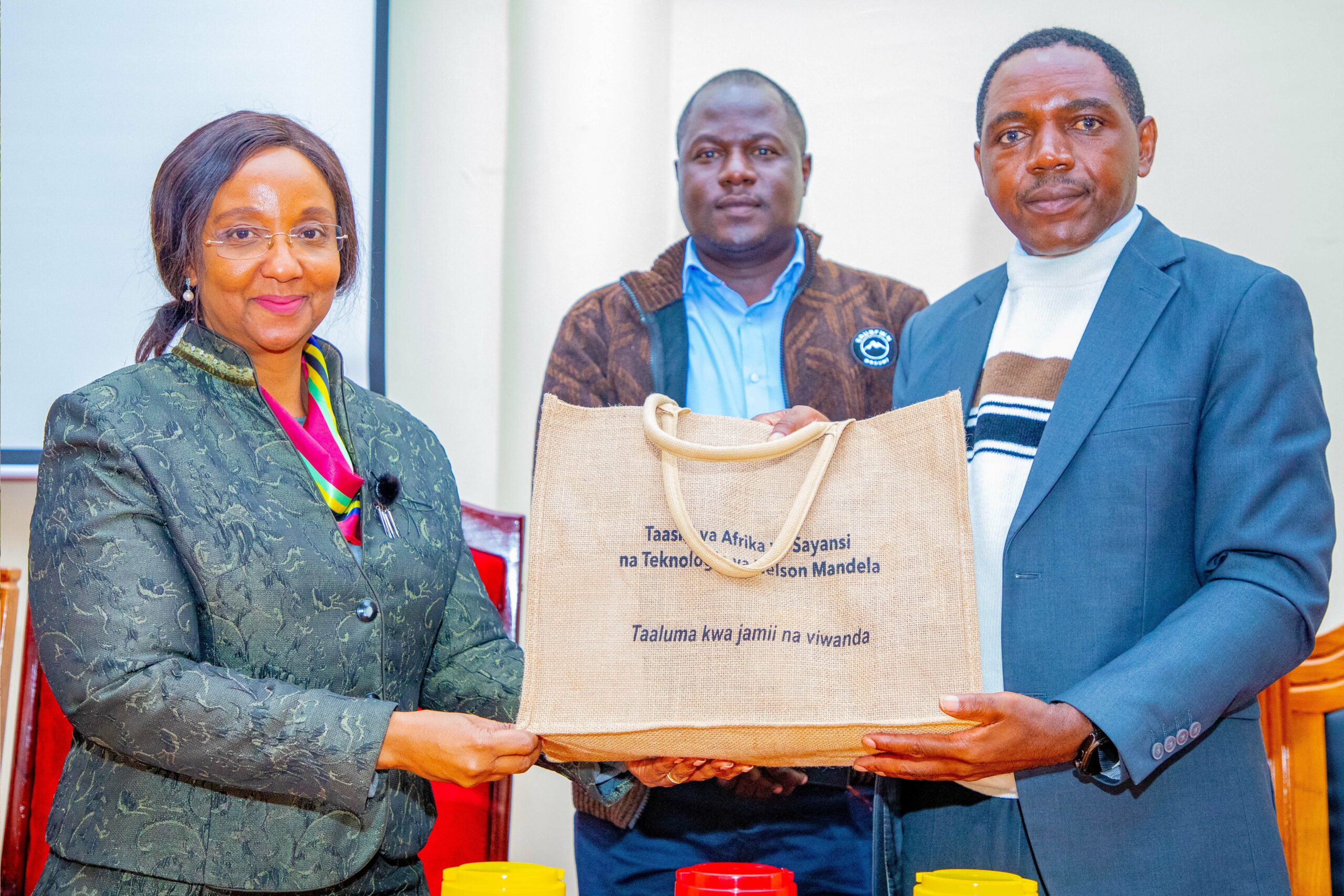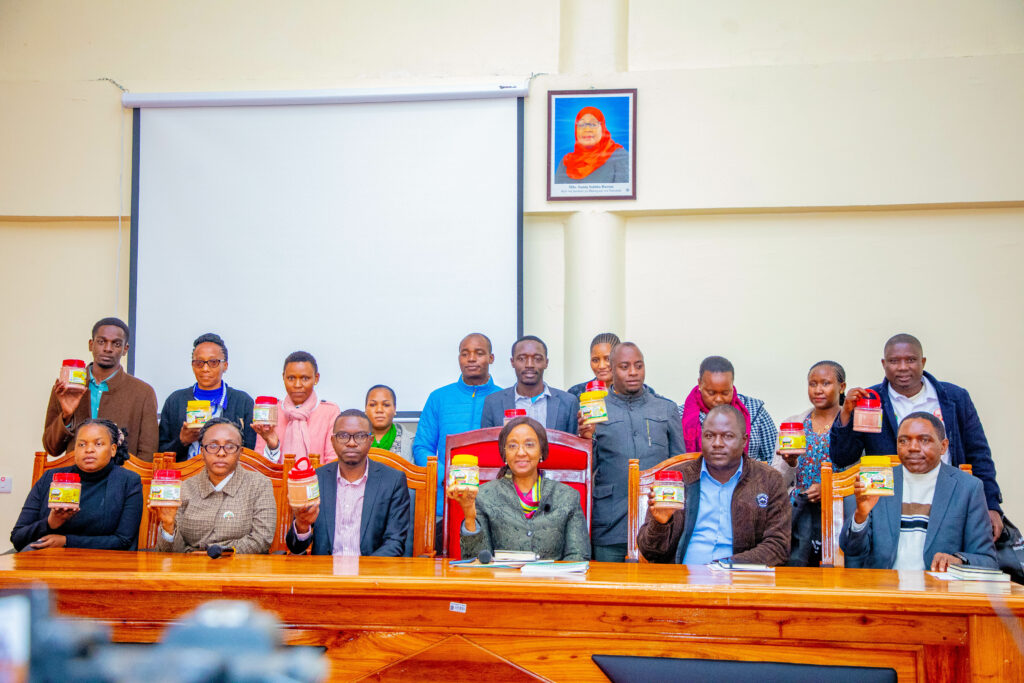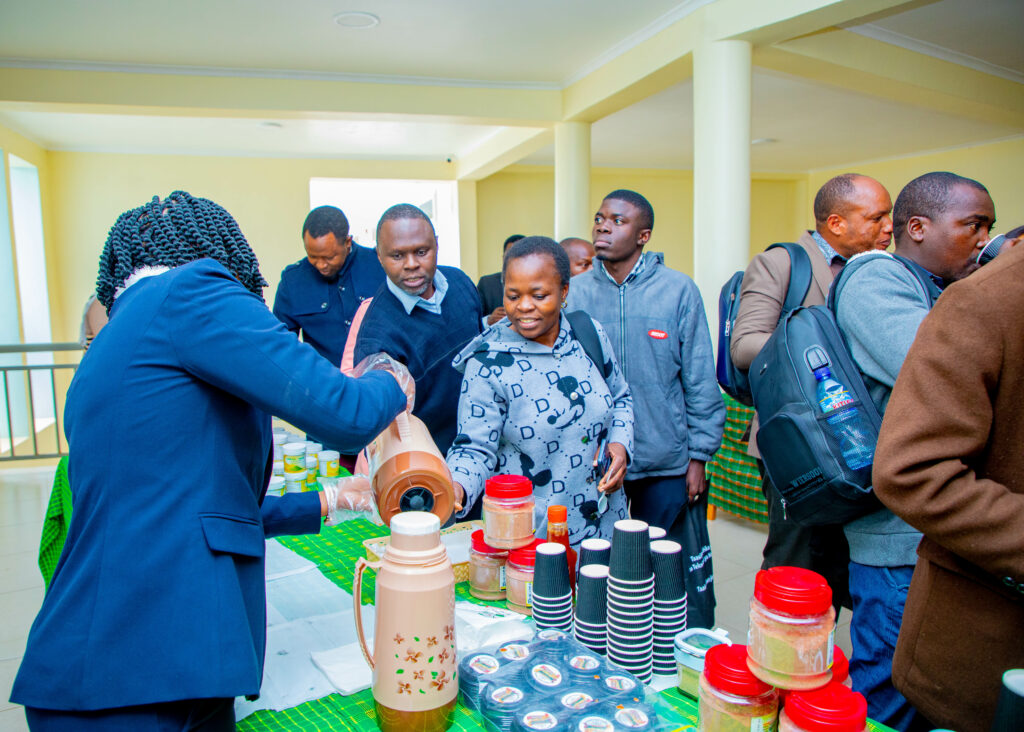
The Nelson Mandela African Institution of Science and Technology (NM-AIST) presented a range of innovative nutritional products aimed at tackling malnutrition in the Njombe Region during the Nutrition Implementation Contract evaluation meeting held at the Regional Commissioner’s Office, an event that gathered key regional stakeholders including government officials, councillors, and nutrition experts on June 6, 2025.
The presentation was during the evaluation meeting for the Nutrition Implementation Contract covering the period from July to December 2024, drawing stakeholders from across the region including members of the Regional Security Committee, councillors, district directors, and nutrition officers, all gathered with a shared goal of improving community health through innovation and collaboration. Among the products introduced were Instant Porridge, Nutrano, Omega 3, and Portland Pozzolanic Cement innovations tailored to meet the dietary needs of local communities, each product carefully developed through scientific research to enhance nutritional value and combat malnutrition, especially in vulnerable populations.
Ms. Judica Omari, the Njombe Regional Administrative Secretary who chaired the meeting, applauded NM-AIST’s contributions, emphasizing that the institution, being a local stakeholder with strong research capabilities, plays an essential role in ensuring that innovations reach the grassroots level where they are most needed.

Prof. Kipanyula took a moment to reaffirm NM-AIST’s commitment to creating impactful, high-quality products that respond directly to the nation’s health needs, expressing heartfelt appreciation to the Njombe Region for embracing and valuing the institution’s work, and then, in a moment symbolic of partnership, handed over sample products to various stakeholders present at the meeting Further enriching the event, Prof. Liliane Pasape stepped forward to share the scientific foundation behind the new products, presenting studies that detailed their development process, health benefits, and potential for widespread positive impact, offering a compelling glimpse into the future of nutrition in Tanzania as envisioned by the country’s leading researchers.







 Visit Today : 1345
Visit Today : 1345 Visit Yesterday : 1776
Visit Yesterday : 1776 This Month : 3121
This Month : 3121 This Year : 122610
This Year : 122610 Total Visit : 809876
Total Visit : 809876